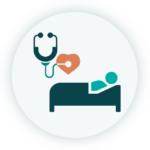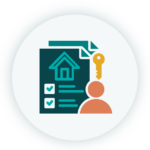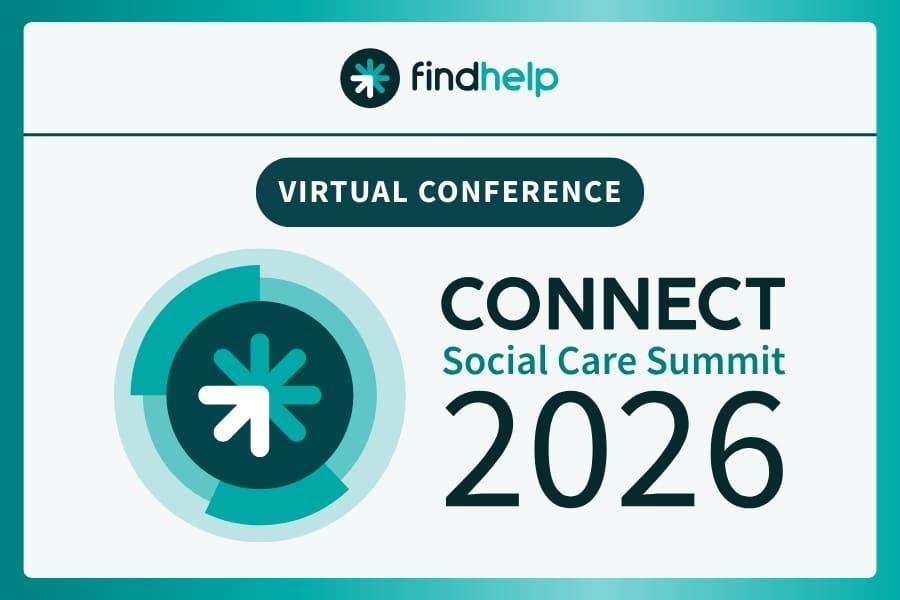CMS Health Equity Initiatives in 2025 and Beyond
Early in the Biden Administration, the Centers for Medicare & Medicaid Services (CMS) published a Framework for Health Equity, documenting the agency’s strategy to strengthen related infrastructure and drive structural change. Through reimbursement, quality measures, data collection, CMS Innovation Center models, Medicaid program guidance, Section 1115 demonstrations, and other initiatives, CMS has pushed providers and health plans to identify and address health-related social needs and improve the health of communities.
Today’s blog details recent CMS health equity activity, including new measures for 2025, upcoming initiatives, and how Findhelp supports this work.
What you’ll learn about:
- CMS’ 2025 social determinants of health (SDoH) and health equity measures
- Potential future federal policy directions
- How the Findhelp platform helps you meet CMS reporting requirements and implement other SDoH workflows

2025 health equity measures overview
For 2025, CMS expanded the following health equity measures to hospital outpatient, rural emergency hospitals, and ambulatory surgery settings. These were previously finalized for the inpatient setting.
| MEASURE | INTENT | DESCRIPTION |
|---|---|---|
| Commitment to Health Equity | Helps healthcare organizations build a culture of equity and safety by prioritizing equity and identifying areas for improvement. | Organizations must attest to equity as a strategic priority, health equity data collection and analysis, quality reporting, and leadership engagement. Reporting is required for calendar year 2025, with payment determination in 2027. |
| Screening for Social Drivers of Health | Provides uniform requirements for reporting on health-related social needs screening for housing, food, transportation, utility needs, and interpersonal safety, across CMS providers. | Organizations must report on the percentage of screenings taking place during the healthcare encounter or admission. Reporting is voluntary for calendar year 2025 and mandatory in 2026, with payment determination in 2028. |
| Screen Positive Rate for Social Drivers of Health. | Builds on the above requirements and demonstrates the magnitude of needs. | Organizations must report one rate for each domain, demonstrating the percentage of patients reporting a positive need. Reporting is voluntary for calendar year 2025 and mandatory in 2026, with payment determination in 2028. |
Connecting health equity measures to reimbursement opportunities
These measures are driving scaled social care screening across the healthcare continuum and related documentation and actions. To bolster these activities, CMS has created reimbursement opportunities that can follow screening:

Social risk assessment. Providers can bill Medicare for administering a standardized, evidence-based SDoH risk assessment that is medically reasonable and necessary, or when they have reason to believe that an SDoH risk is interfering with diagnosis or treatment.

Community health integration (CHI) services. Auxiliary personnel, like community health workers (CHWs) can provide tailored support for unmet social needs that are interfering with patients’ diagnosis or treatment. Services can include person-centered planning, health system navigation, and facilitating access to community resources. The auxiliary personnel must be supervised by the billing provider.

Principle illness navigation (PIN) services. Auxiliary personnel, like peers and patient navigators, can provide services similar to those provided under CHI. PIN services are for patients with serious, high-risk conditions requiring ongoing monitoring or treatment adjustments, expected to last 3+months, and that put the patients at risk of hospitalization, nursing home placement, or decline. The auxiliary personnel must be supervised by the billing provider.

Increased inpatient reimbursement. The diagnosis codes for homelessness, housing instability, and housing inadequacy are on Medicare’s comorbidity and complication list. Admissions with the appropriate diagnosis codes are eligible for a higher reimbursement rate.
Many Medicaid programs have also created reimbursement opportunities for services that address health-related social needs. These can include section 1115 waiver demonstrations and reimbursement for community health worker services.
Potential policy directions for 2025
Certain CMS activities are indicators of how the agency’s health equity and social care-related work may evolve over the years. Here are some areas to watch:
New social care measures
CMS’ annual pre-rulemaking process included new proposed social care measures, such as:
- Including the National Committee for Quality Assurance’s Social Needs Screening and Interventions measure in Medicare Star Ratings.
- Proposing a brand new social care screening and intervention measure for inpatient and outpatient settings.
Medicaid program guidance
At the end of December, CMS published an Informational Bulletin with an HRSN Framework describing services and supports that are allowable under specific Medicaid and CHIP authorities.
CMS Innovation Center models
The CMS Innovation Center has launched several models with health equity and HRSN requirements. These include:
- Innovation in Behavioral Health model – focuses on integrated, person-centered care in the behavioral health setting, aiming to integrate behavioral health, physical health, and social care.
- Transforming Maternal Health model – focuses on whole-person care for pregnant women, including addressing HRSNs and access to community health worker services.
- States Advancing All-Payer Health Equity Approaches and Development (AHEAD) Model – focuses on curbing healthcare cost growth, improving population health, and advancing health equity by reducing health disparities. Connecticut, Hawaii, Maryland, New York, Rhode Island, and Vermont are participating.
- Transforming Episode Accountability Model (TEAM) – focuses on improving care coordination and outcomes for Medicare beneficiaries undergoing specific surgical procedures. This model is mandatory for most inpatient facilities.
Findhelp’s policy team actively monitors these policies to keep you up-to-date and help you maximize platform use to get the best possible patient outcomes and ROI.
Implement quality measure workflows with Findhelp
Scaling HRSN screening and intervention workflows can be complicated, but Findhelp technology simplifies quality measurement processes for healthcare providers and payers.

Use built-in screenings, like the Accountable Health Communities and PRAPARE, or configure your preferred questions.

Integrate Findhelp directly into your EHR, avoiding multiple systems.

Seamlessly refer patients with needs to programs that serve them using our closed-loop referrals.

Set up coding prompts (e.g. LOINC and SNOMED-CT) using the most up-to-date data standards to support electronic reporting.

Aggregated screening and referral data informs performance improvement, partnerships, and planning.
We partner closely with you to develop enterprise-level, scalable processes for seamless implementation. Chat with us to learn more!









